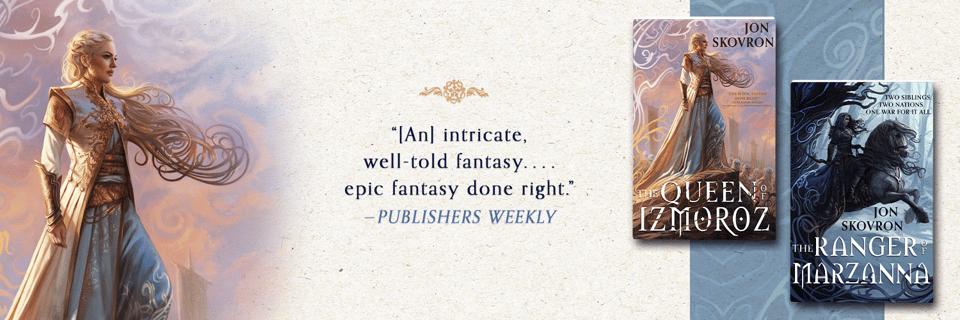Ok, but what is Fantasy?
There’s nothing quite like preparing to teach a course that forces you to grapple with that subject matter in the most concrete way. My Atlas Obscura online course on writing fantasy starts next week, and as I put together the slides for the first session on June 3, I keep coming back to that age old question: what exactly is fantasy?

There are a bunch of ways to come at this, and over the 4 week course, I’ll cover all of them. But I thought it might be fun to hash it out here a bit, sort of like a preview, if you’ve been thinking of signing up for the course, but are still on the fence (Atlas Obscura has one or two free spots you can try for!). Also, I recently wrote a piece on “What is horror”, so this seems a fair balance. And as you’ll soon see, possibly relevant!
At it’s most basic, we can define fantasy as a story that includes one or more elements that defy our current understanding of science. Magic is the simplest example of this, but we could also include creatures like elves, goblins, etc. Things we know aren’t possible. There, easy right? Fantasy, defined!
Um, but not really. Because there are movies like James Bond and Mission Impossible that 100% defy physics as we know it, but we would not be inclined to include those in the fantasy genre.
And what about supernatural horror? Is that perhaps a type of fantasy? We have “Dark fantasy” after all. So what’s the difference between that and horror?
I think we can probably break down the elements that define fantasy along two lines:
Form: the expected elements that we immediately identify with fantasy stories, like magic, dragons, orcs, etc.
Intent: What effect is the writer trying to achieve for the reader?
Form isn’t too hard to figure out. There’s always the Star Wars caveat, of course, which contains elements of both science fiction (space ships, lasers), and fantasy (wizards, witches, dragons) and we will not be getting into that here. But essentially, we know the fantasy signals, at least in its current form. Mostly. You see an elf, you go, “Ah, fantasy!” But what about stories that don’t have those clear-cut examples? Is magical realism a subgenre of fantasy? Gabriel Garcia Marquez wrote some stuff that 100% defies science, but there are zero elves. So does that count? What about Naked Lunch by William Burroughs, or The Bald Soprano by Eugene Ionesco? Big time reality-breaking stuff there. Is that fantasy? Or not? But those fringe cases aside, I think most people know fantasy when they see it.
Intent is a little more slippery, and here’s where we get back to that line between dark fantasy and horror. Horror, as the genre we currently recognize, is defined not necessarily by its form, but by it’s intent. It is made to horrify you, or at least scare you. It may be supernatural horror, like Stephen King, or it may be psychological horror, like Catriona Ward. They’re both defined as Horror because of the feelings they inspire in the reader. Dark fantasy, on the other hand, uses common elements of supernatural horror, but not necessarily to scare you (although there is sometimes an element of that along the way). It’s like the old saw, what’s the difference between Horror and Thriller? Thrillers usually have happy endings.
So if fantasy is defined, in part, by intent, i.e. the feeling it inspires in the reader, what feeling is that?
The answer would likely double the length of this already overly wordy newsletter, so I’ll just be horrible and say, “Enroll in the course to find out!!!” 😁
Talk soon,
Kelley